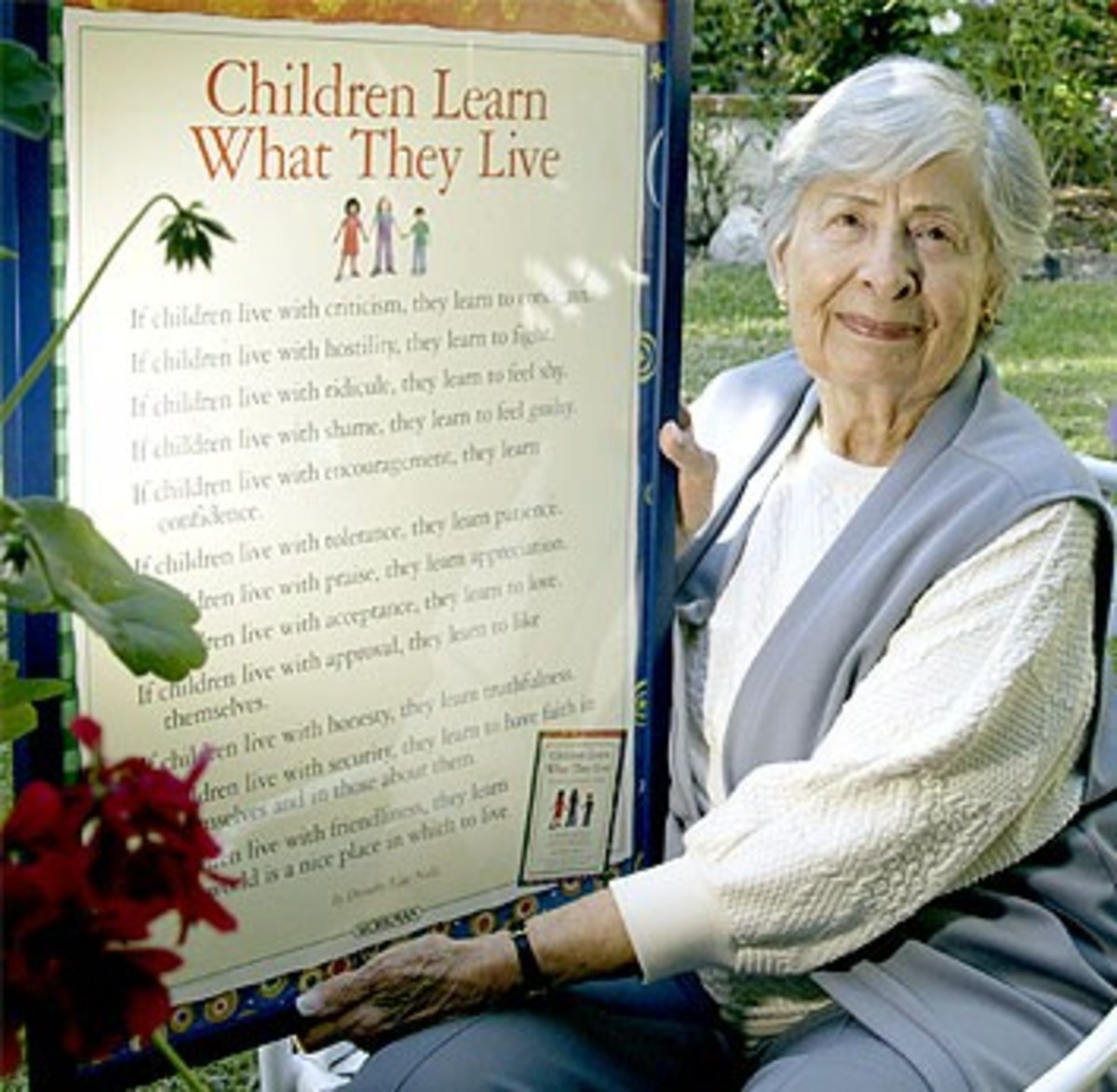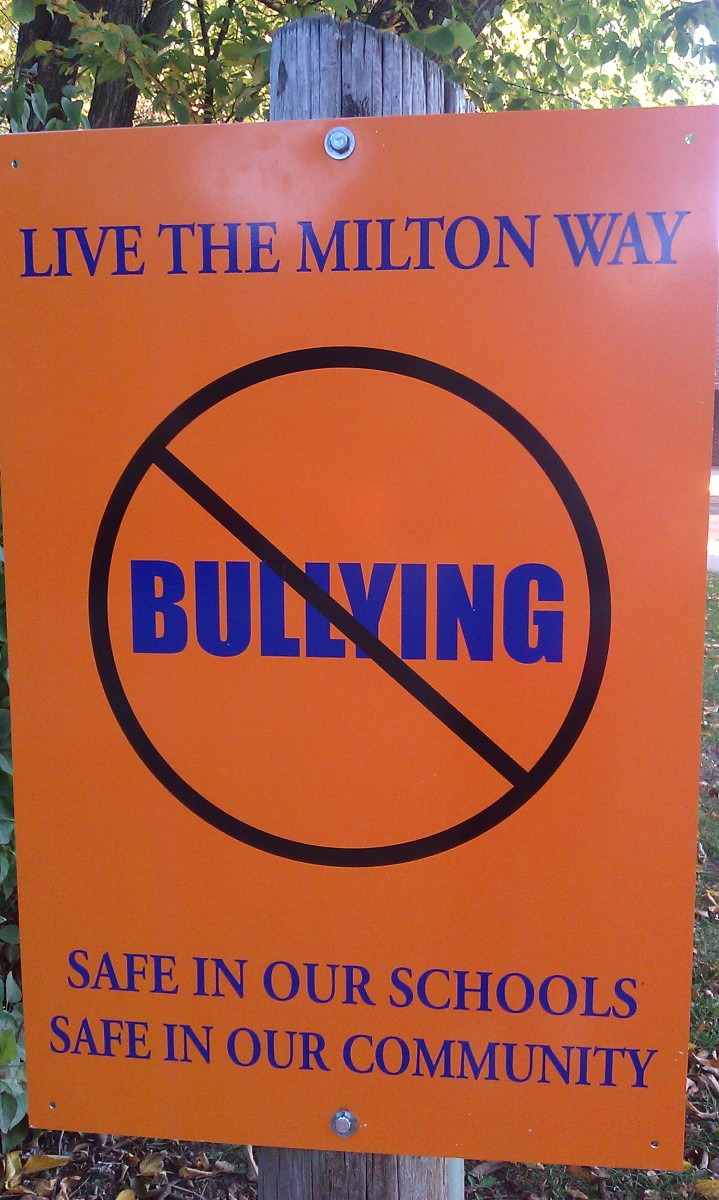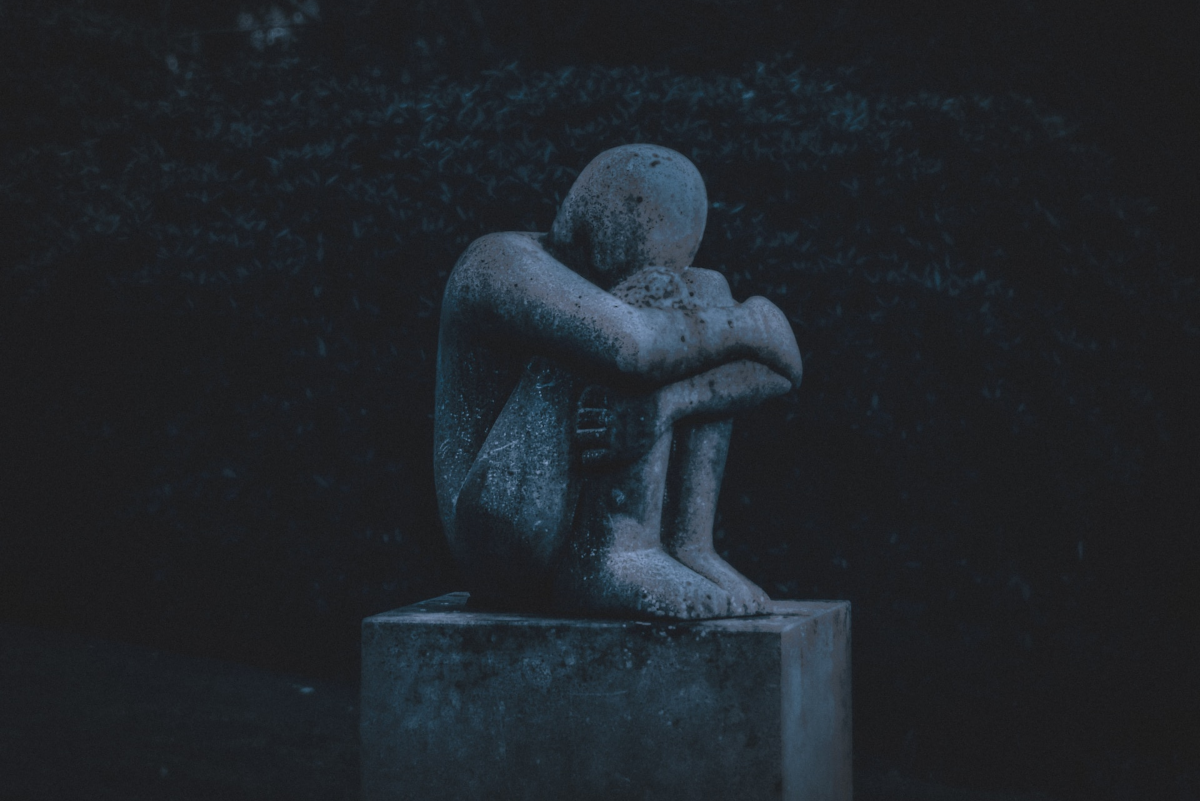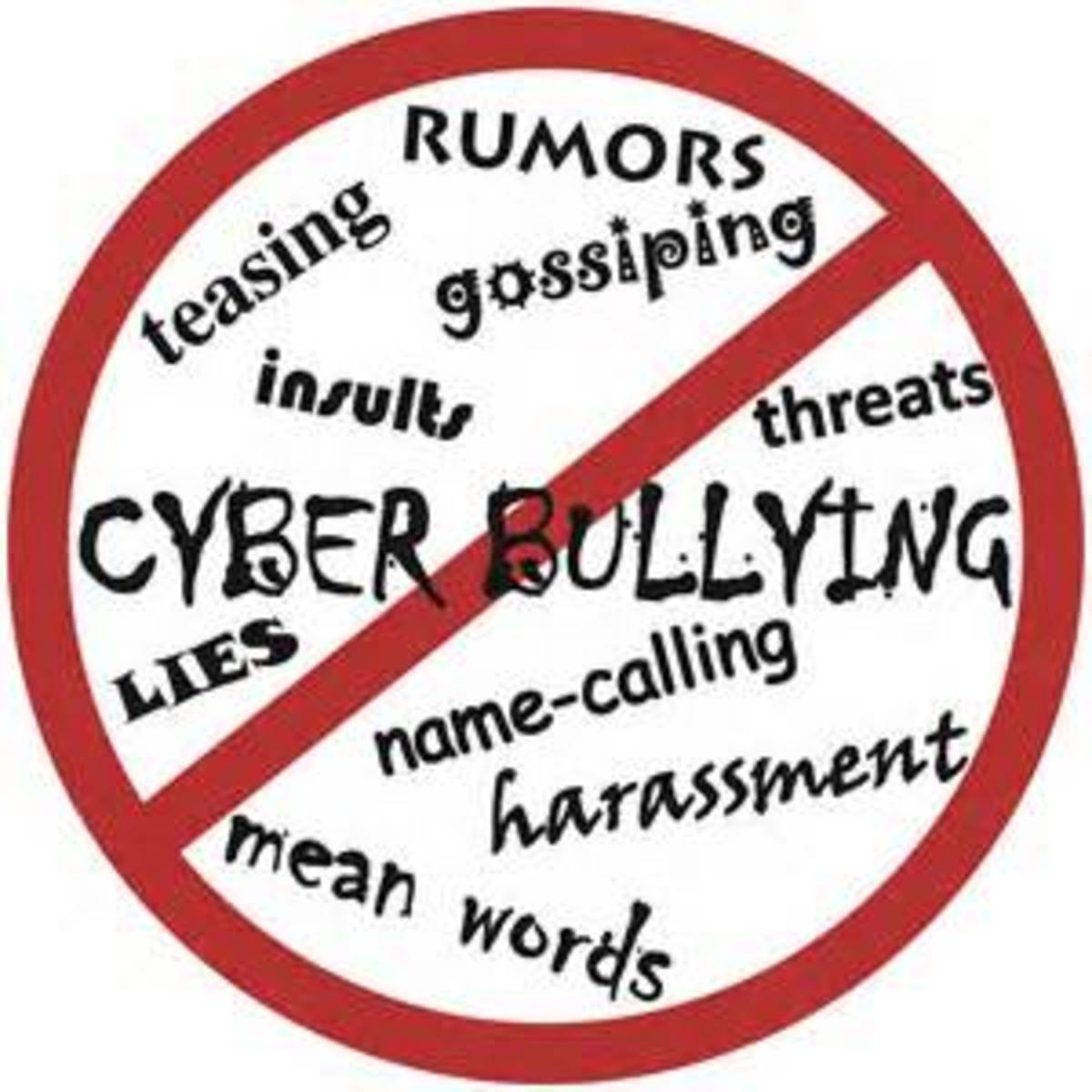A Big No for Bullying
Stop Bullying Now!
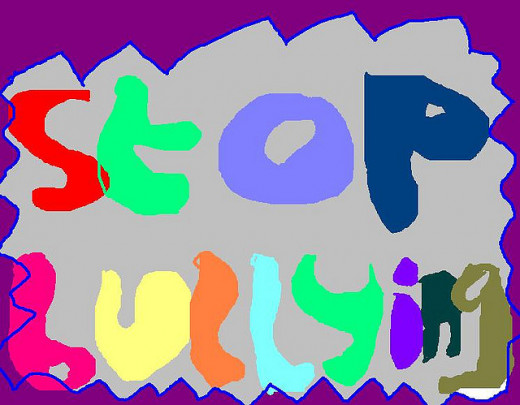
Bullying Prognosis
I believe that bullying like other researches happens in every school, in every grade, all across cultures. It is a common form of violence that we can witness in the society we are living in. Olwen (1993) with his study indicated that being bullied during middle childhood is predictive and having low self-esteem in the years ahead. In young adulthood, children who were bullied in their middle childhood years were more depressed and had lower self-esteem than their peers who had not been bullied. While children with positive experiences with their peers tend to have higher self-esteem and more adjusted later in life.
Bullying is not about resolving problems but it is about having power and control over another. Although bullying is generally thought of as a childhood problem; but then, it takes many forms across the lifespan that includes sexual harassment, gang attacks, dating violence, assault, domestic violence, child abuse, harassment in the workplace, and elder abuse (National Crime Prevention Council, 1997).
Thus, seeing bullying behaviors that children learn, practice, and experience from a very young age, as a potential antecedent to other forms of violence heightens the need to address this behavior early and consistently (Stein, 1995).
In my own opinion, it is necessary and crucial to address this problem in middle childhood before it leads to complications and interventions become too late.
One Day Kindness Boomerang
Book: Stand Tall Molly Lou Melon
Suggested Ways
As we have known, the peer relationship is one of the main concerns of middle childhood. Gary Ladd, a professor of Psychology and Development of Arizona State University has something significantly found out. Bullying will only be reduced through the commitment and coordinated efforts of communities, schools, parents, and policymakers. According to him, to effectively change children's peer relationships, especially those undesirable ones that have been entrenched for many years already; it is not enough to increase the children's social competence without also altering their peer and family environments. It is a must for children to be taught forgiveness and empathy. They must learn to be accepting of individual differences.
Tips for Parents On How to Help Your Child Deal with Bullying
-
Teach your child to avoid being an easy target of bullying. Start with posture, voice, and eye contact.
-
Tell your child to avoid isolated places where no one can see or hear him or her. If bullying starts, the child might be able to deflect it with humor or by changing the subject.
-
Teach your child to run over a list of positive attributes in mind. This would remind the child of being worthy of something better than bullying behavior.
-
Teach your child not to obey the commands of the bully because often it is better to run away than to comply.
-
Help your child make more positive friends. Being in a group may lessen your child's likelihood to be the target of bullying.
Tips for Parents On How to Let Your Child Disclose About Bullying
-
Parents should learn to know how to let their children open up about personal concerns. It is best to raise the subject during the calm, neutral times. Ask for general questions about the things the bothered the child and get the detailed story as much as possible. Avoid interrupting or judging.
-
Parents should try to stay calm and do not make any outraged statements while their child is relating what happened. Avoid offering premature solutions or else, you may not get the entire story as first told. Be patient.
-
If you feel that there is something going wrong and you are suspecting that your child is not relating the whole story, talk to the teacher of your child.
Campaign against bullying
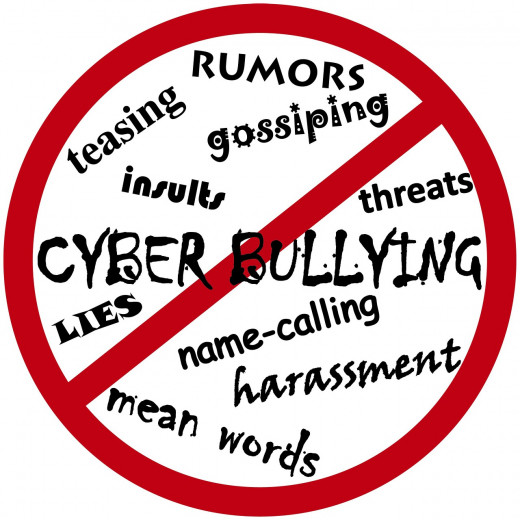
Bullying Interventions that can be done by the School
-
Administrators can let the children from different cliques, ethnic groups, and neighborhoods be involved in some mediation training, student government projects and conflict resolution trainings.With peer mediation training, the mediators should be chosen from a broad spectrum of students and not just the achievers or the sports enthusiasts.
-
Teachers and staff should discuss the social atmosphere in school. The coaches, organization moderators, bus drivers, guards, aides and janitorial staff should be included. Once the approach is already finalized, the school teachers and staff should meet the parents through a Parents Teachers Association assembly.
-
When bullying behavior can be seen, the teacher or the guidance counselor can intervene at different degrees depending on the severity of the incident.
-
The school can organize cooperative activities in the classroom or on the playground and find ways to emphasize the achievements and strengths of the many different types of children.
-
Provision of written behavioral expectations for pupils to be signed by the pupils, parents and teachers.
-
Creation of disciplinary program that emphasizes rewards for correct behavior rather than just focusing on demerits from misbehavior.
-
Post rules that mandate respect between each pupil.
-
Consistent consequences for those who do not follow the pupil code of behavior.
-
Children who tend to be victims should be supported by the formation of friendship groups.
-
Figure out the locations where bullying behavior is most likely to occur and conduct a close monitoring on these areas in the campus.
-
Pair children in an ongoing buddy system so that no one will be left on his or her own.
-
Facilitate classes on assertiveness; active, non-violent parenting techniques and anger management.
-
On going curriculum on decision making and conflict resolution for children.
-
Publicize classes and groups that build self-discipline and social skills.
Book: Spaghetti in a Hotdog Bully
Personal Insights
The middle childhood stage of human development is very much crucial in the way we would view ourselves later in life. Experiences with peers which are the major focus at this stage have a significant impact on our esteem needs.
Thus, I consider it very important, the role of the parents in raising their children. Upbringing is vital so that the children will not be confused on how to behave and respond appropriately to situations not being easily influenced by peers and other outside influences like media.
Communities, schools, parents, and policymakers should collaborate and hand in hand create advocacy programs. Advocacy programs that encourage prosocial behavior, a good school climate and the prevention of bullying are needed. This is mainly because it is at this stage that later problems in society are molded. As being said, an ooze of prevention is better than a dose of the cure.
Children Learn What They Live By Dorothy Law Nolte, Ph.D.
As I've gone through the process of organizing this article, I was reminded of this certain piece of poetry that I personally like. This could picture our middle childhood.
If a child lives with criticism,
he learns to condemn.
If a child lives with hostility,
he learns to fight.
If a child lives with fear,
he learns to be apprehensive.
If a child lives with pity,
he learns to feel sorry for himself.
If a child lives with ridicule,
he learns to be shy.
If a child lives with jealousy,
he learns what envy is.
If a child lives with shame,
he learns to feel guilty.
If a child lives with encouragement,
he learns to be confident.
If a child lives with tolerance,
he learns to be patient.
If a child lives with praise,
he learns to be appreciative.
If a child lives with acceptance,
he learns to love.
If a child lives with approval,
he learns to like himself.
If a child lives with recognition,
he learns that it is good to have a goal.
If a child lives with sharing,
he learns about generosity.
If a child lives with honesty and fairness,
he learns what truth and justice are.
If a child lives with security,
he learns to have faith in himself and in those about him.
If a child lives with friendliness,
he learns that the world is a nice place in which to live.
If you live with serenity,
your child will live with peace of mind.
With what is your child living?
This poem serves as a point of reflection for us to ponder about. May each child would experience a happy middle childhood years!
What role do you take part?
Enemy Pie Book
Brighter days without bullying

Book: The Recess Queen
Hub you missed reading...
- Bullying Facts
This article is trying to share facts about bullying in the middle childhood. Let us together campaign against bullying. Hopefully, we can make a difference into the lives of the future generations.
This content reflects the personal opinions of the author. It is accurate and true to the best of the author’s knowledge and should not be substituted for impartial fact or advice in legal, political, or personal matters.
© 2014 Best of Aying







